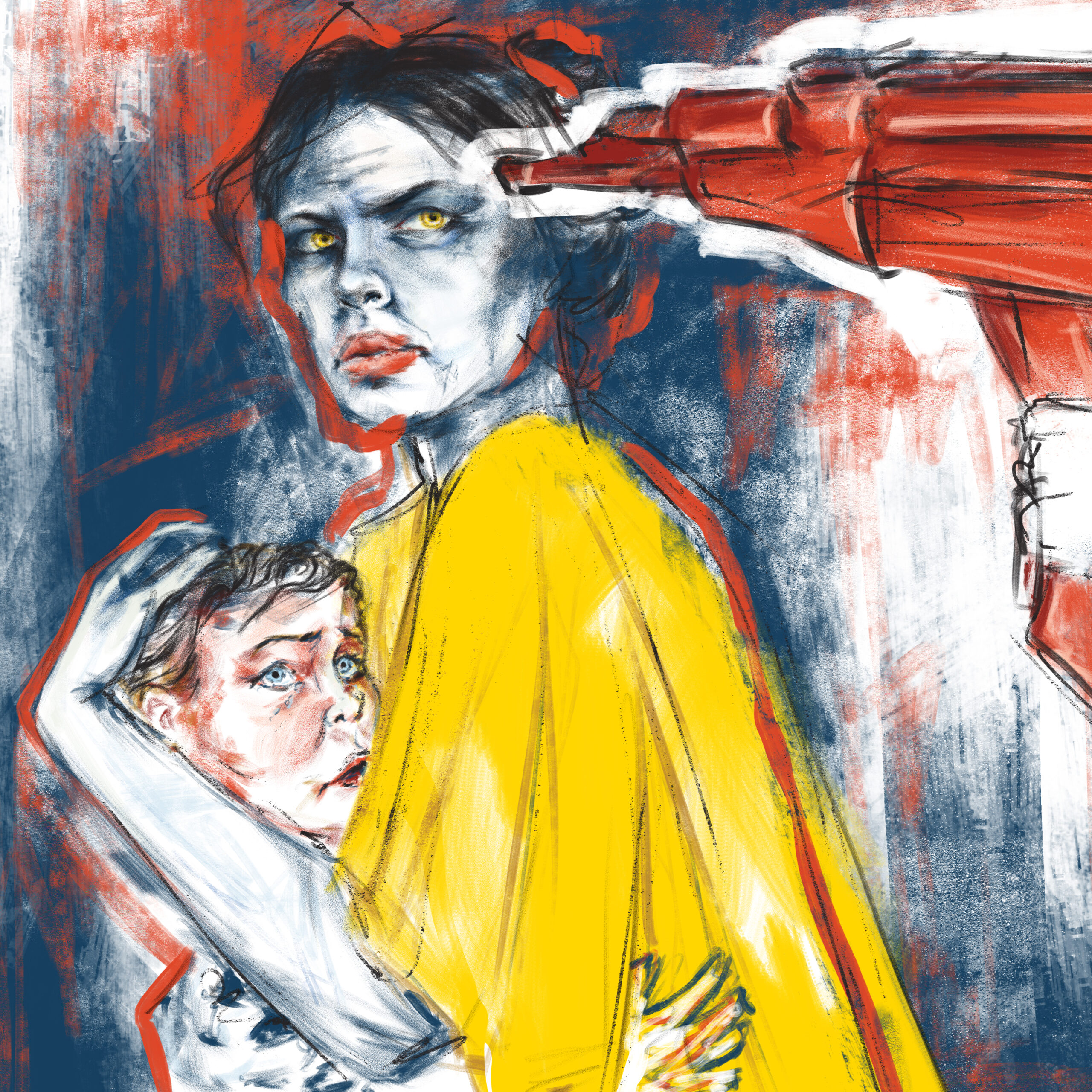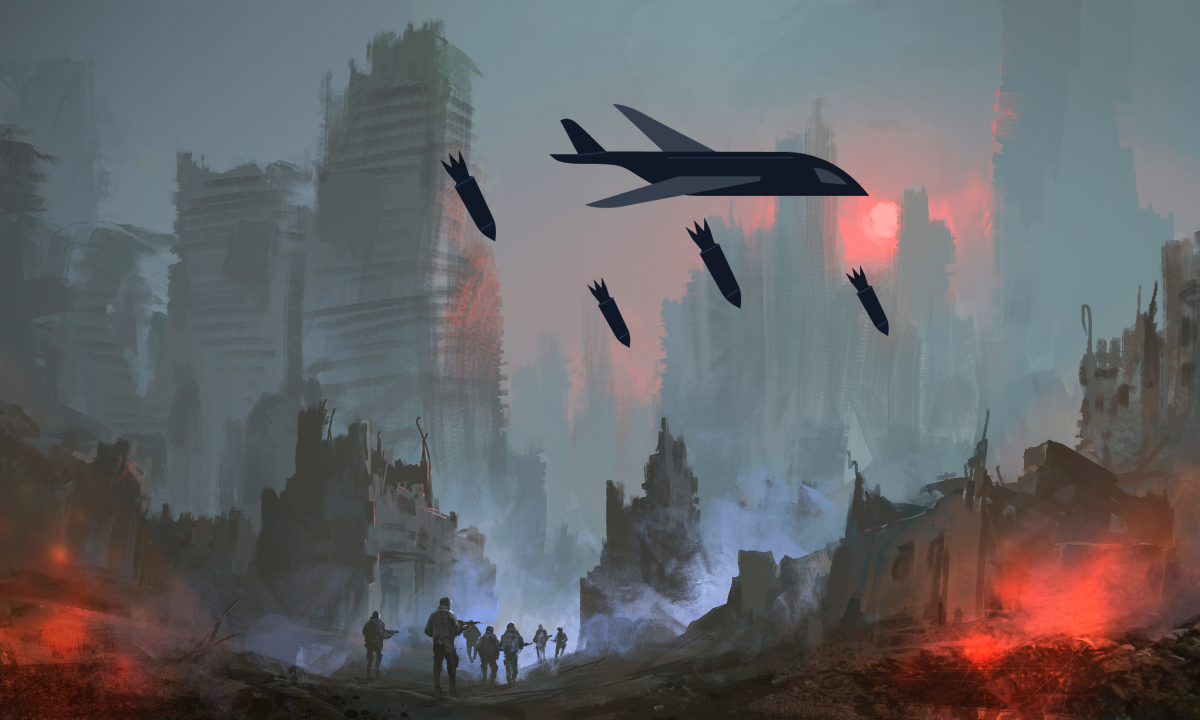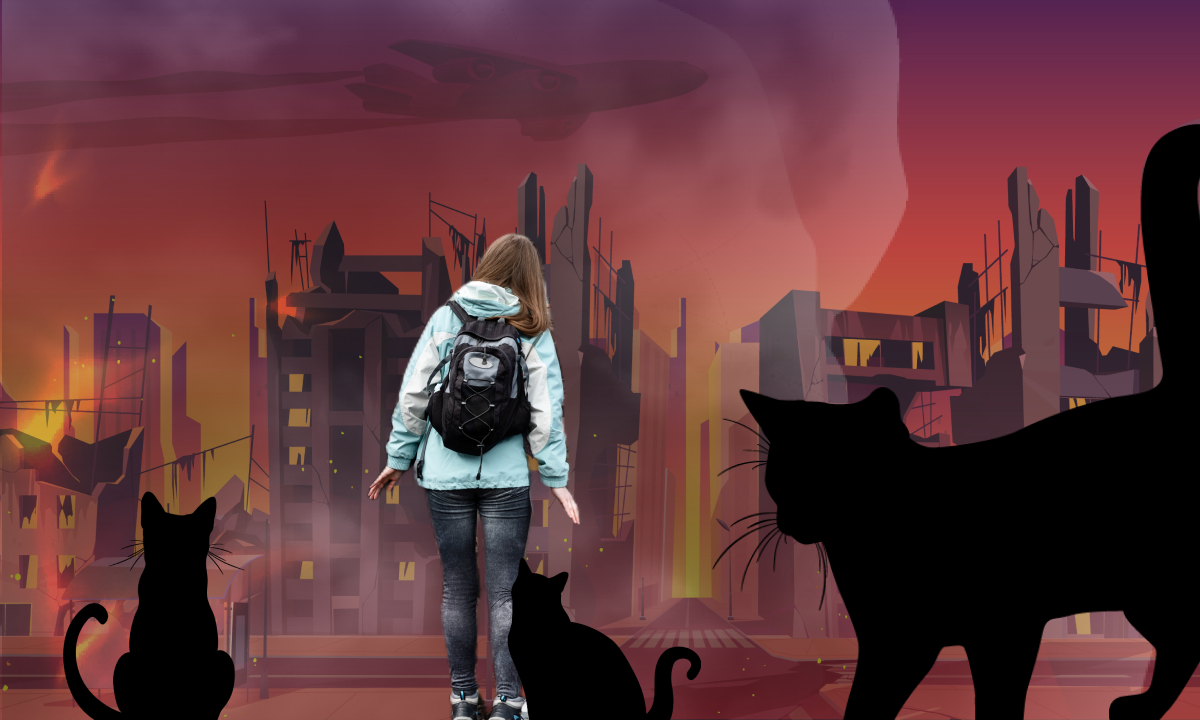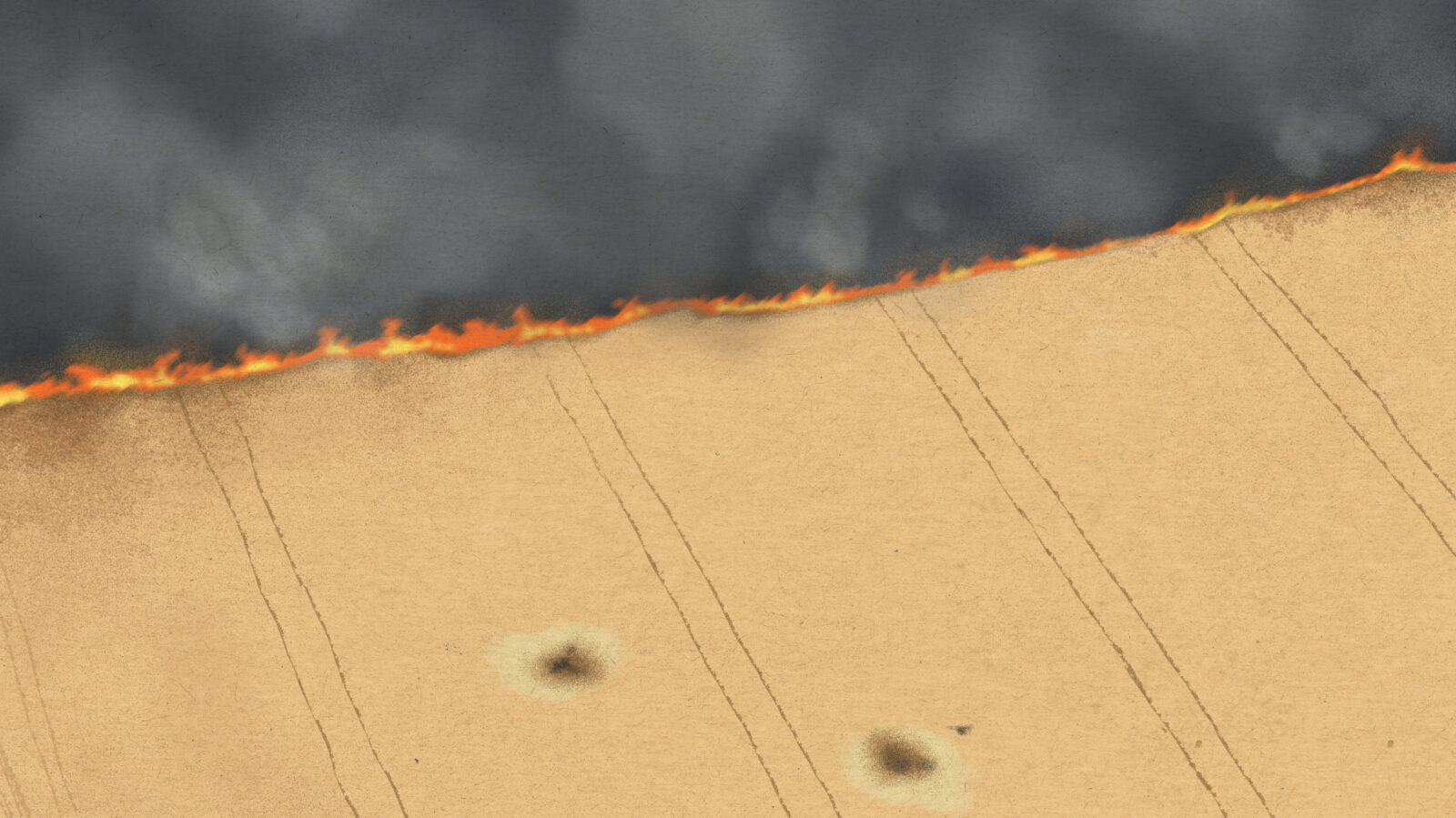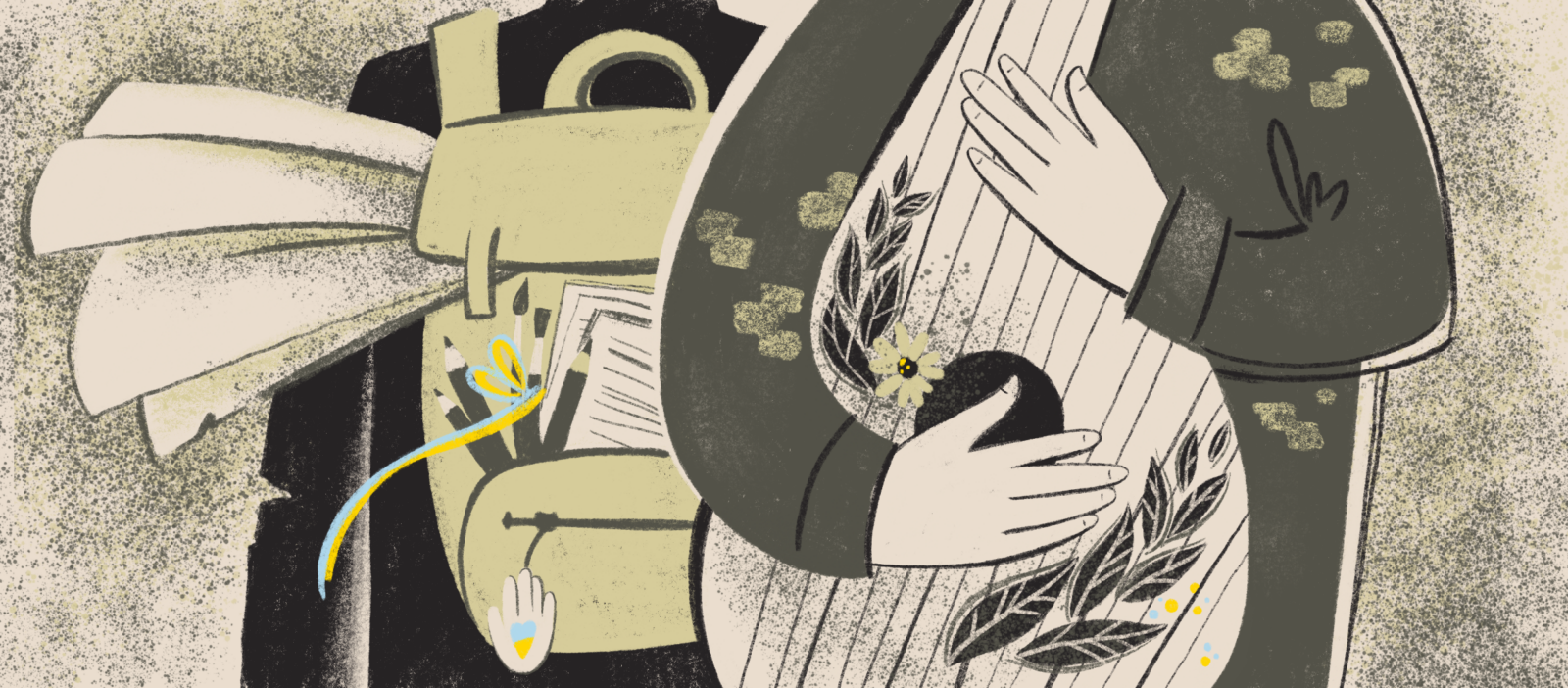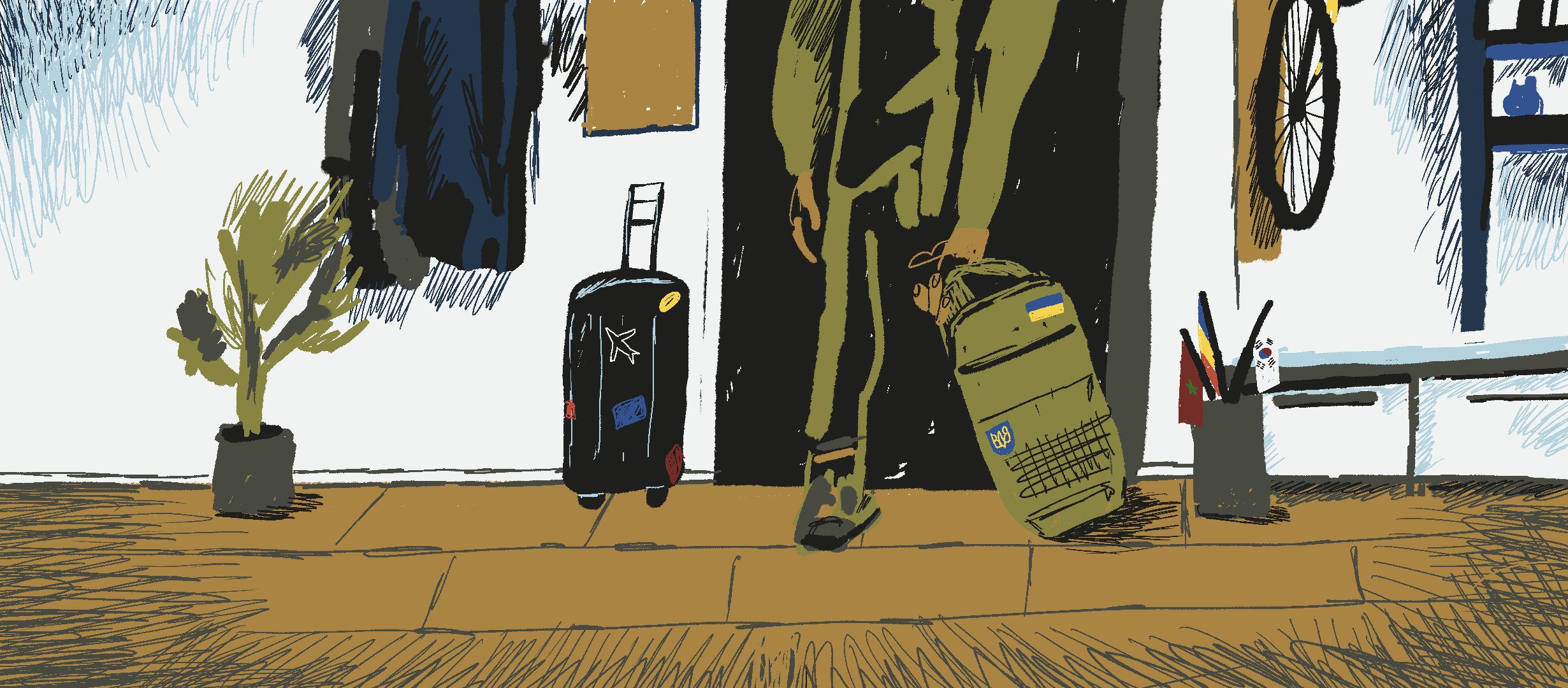Illustated by Nastya Kryvonosiuk
“The Russian ‘tourists’ came to the homes of citizens with an active civic position today. They are just in the streets, and there is no one to protect us, not even the police,” says Hanna. She is 26, and in peacetime she was a content manager.
I realized that the occupiers had entered Kakhovka, Hanna’s hometown, right in the middle of our conversation. “It is possible to leave and enter now, but it is very risky. Children and medical workers are being shot—everyone without exception. No use even trying to leave in the direction of the Kakhovka Hydroelectric Power Plant, it’s very hot there.”
On the morning of February 24, Hanna woke up to the sound of shelling: the target was the premises of a local military unit. “These people were passing by us, with the Z marks (a symbol by which Russian troops identify their own forces). From the Crimea. Enemy vehicles in your hometown! Later, those animals started shooting people: entire families, children, a man who was riding a bicycle home from a fishing trip…”
On March 7, the shelling turned into machine gun fire. The occupiers drove into the city in civilian cars from the outskirts. Cell connection in the city is jammed, there is no internet either. The girl admits that she is scared when all the SIM cards are offline.
“But we still have the radio,” she said. “Imagine, it became useful again.”
“Unfortunately, medicine cannot be delivered even to big cities, let alone smaller ones. Our family needs L-thyroxine, a vital drug for people with thyroid disease. And we aren’t the only ones, right?”
Hanna admits that she has never been so interested in the news in her life and never waited for the President’s speech the way she does now. “I don’t know how to describe my feelings correctly. I’m in pain, it’s very sad, I feel lost, then afraid, then hateful. I have never felt such anger and helplessness in my life. My little four-year-old brother prays to God to make the war be over. Women who try to save innocent children are shot in the head.”
Despite everything, Anna’s family stays at home. They try to leave the house as little as possible and help others with medicine or food. Just in case, they’ve packed backpacks with papers, medicine and water. But they still don’t understand when it may be needed.
“I really want it to end. To stop people dying. Just to wake up and go to work, calmly go about my business. “

